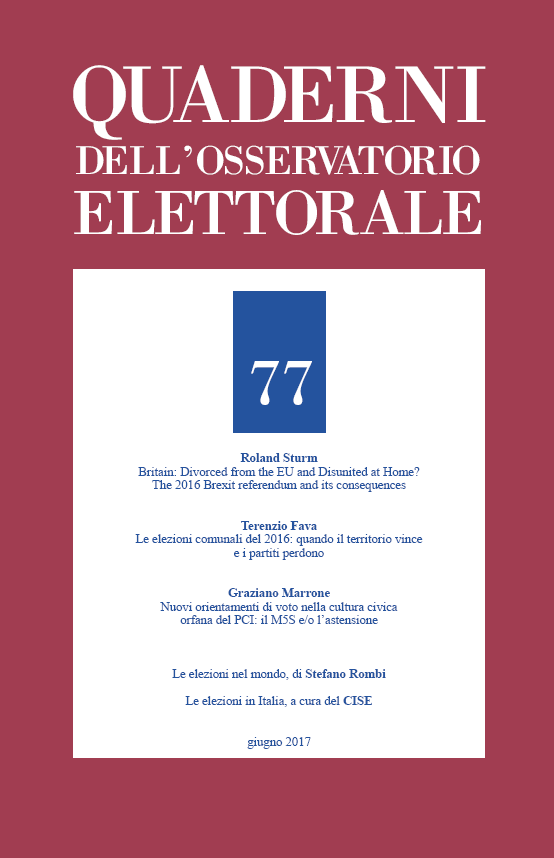Published 2017-06-30
Keywords
- local elections,
- local politics,
- civic lists,
- Democratic Party,
- Five Star Movement
How to Cite
Abstract
Local elections held on June 2016 in Italy asked voters to appoint more than 1,300 among mayors and municipal councilors, some of them in big cities like Rome, Milan, Turin. This article aims at assessing who is the real winner of this election. At first sight, the Five Stars Movement won this election. Nevertheless, some doubts arise because of its limited coverage of the territories, internal conflicts and the lack of homogeneity of its electoral results at the local level. Among the losers, Forza Italia and minor parties like NCD and extreme-left parties are to be counted, while the Northern League secured its previous elections' percentage. The Democratic Party reported huge losses but remained the leading party in half of the voting municipalities. A more in-depth analysis shows however that local lists (civic lists) strongly improved their results and voters' support. From this perspective it is the territory that won 2016 local election. The article claims that this may negatively affect the national political system and political establishment. Civic lists bring in fact together different political actors (such as notabilities, patrons and relevant clienteles) with populist local movements, and often show weak political capabilities in local government.l

